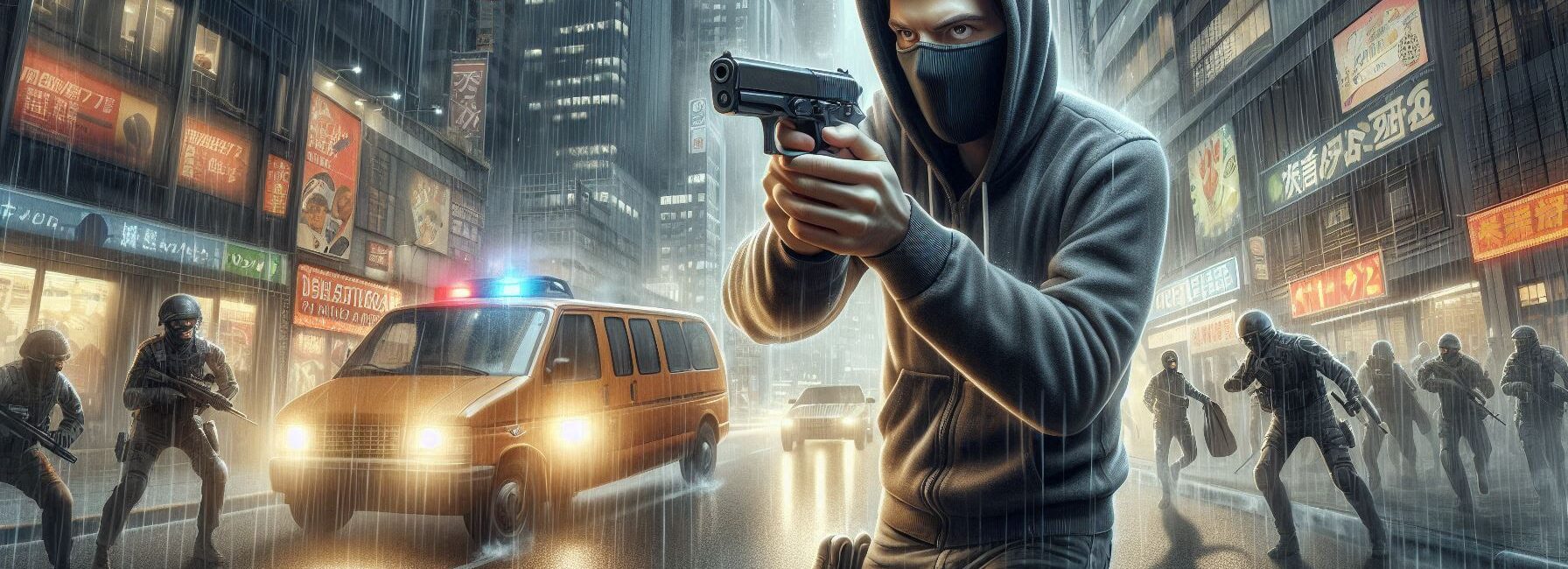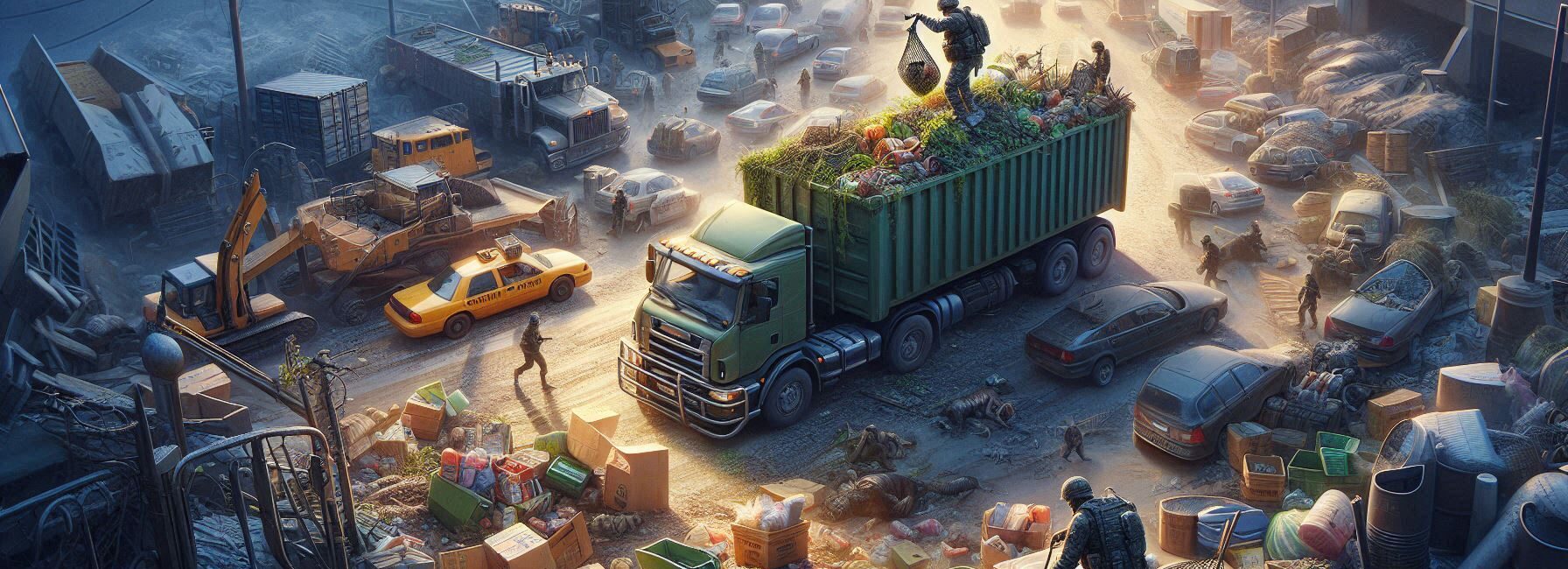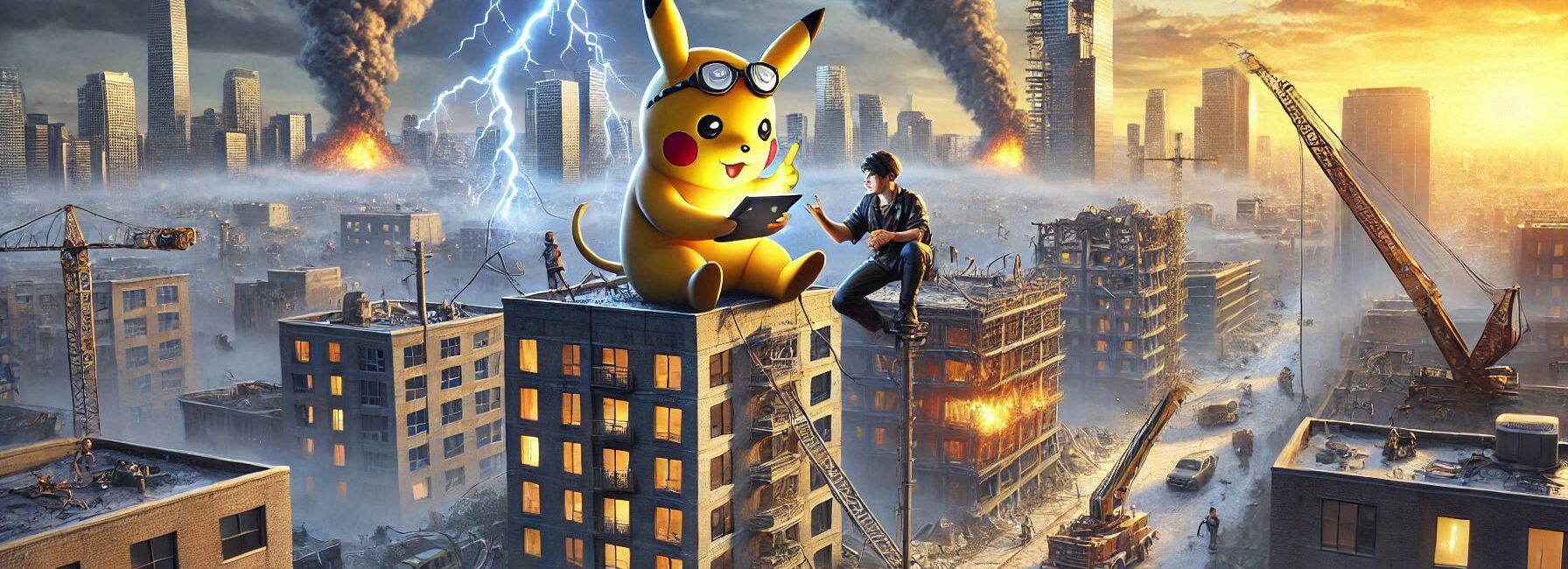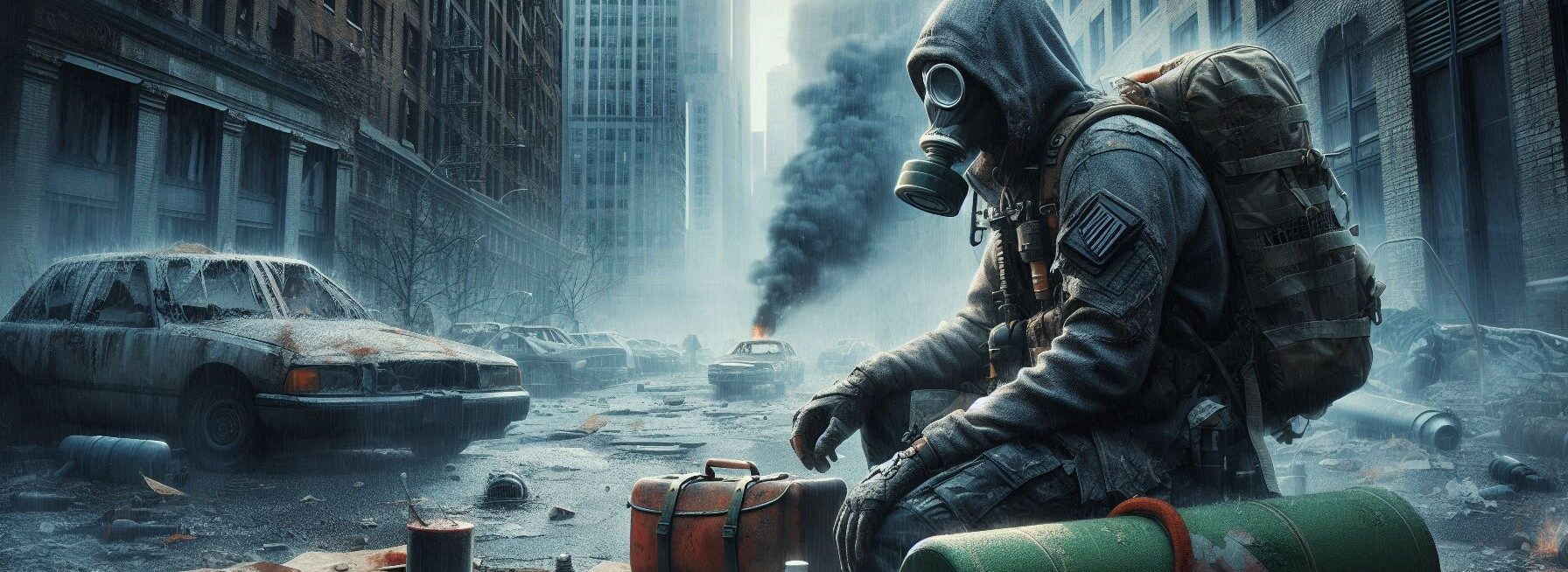Please Note: This post may contain affiliate links. If you click one of them, we may receive a commission at no extra cost to you. As an Amazon Associate, I earn from qualifying purchases.
Last Updated on October 19, 2025 by Kevin Collier
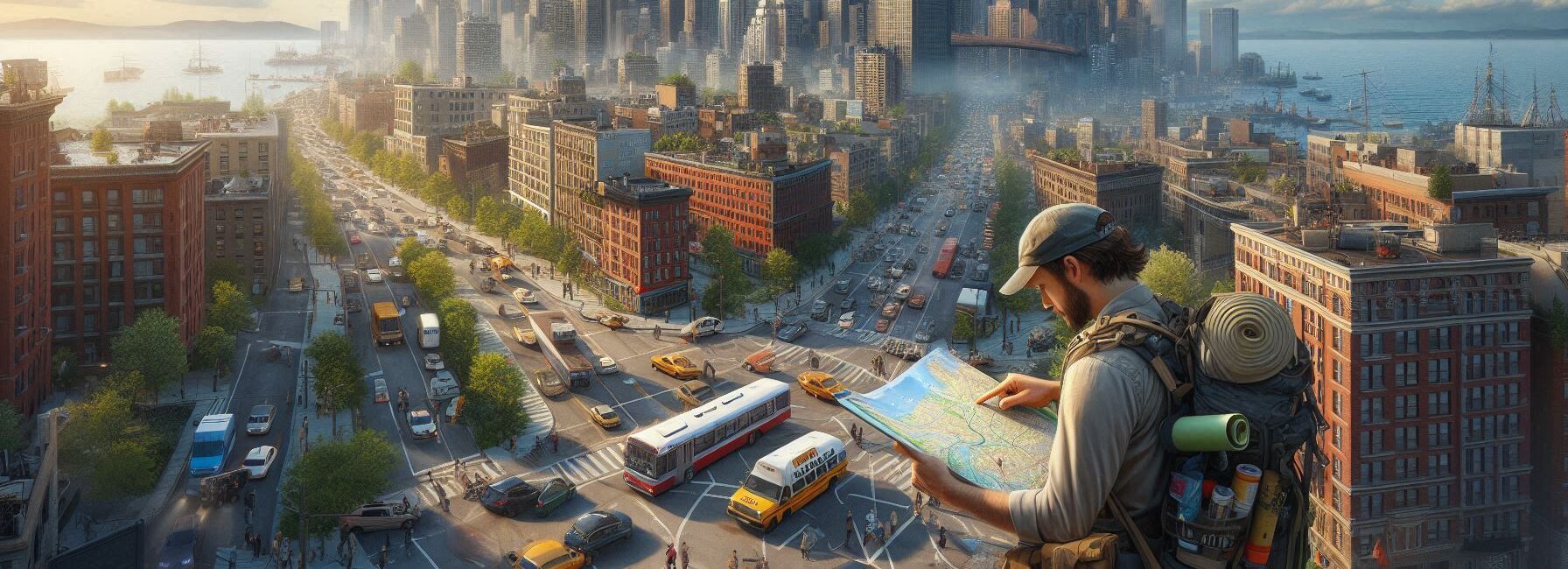
Top Takeaways and Key Concepts
- Observe your surroundings carefully and memorize landmarks to navigate effectively.
- Keep a paper map handy and learn to read it beforehand.
- Ask locals politely for directions when unsure of your route.
- Learn public transportation routes and signs to move efficiently in cities.
- Stay calm under pressure and focus on one step at a time.
Picture this—you’re in the middle of a city, and it feels like a scene from an action movie. Cars everywhere, people rushing, and boom! Your smartphone just dies. No maps, no GPS. Yikes! Now what? All you’ve got is maybe a sandwich from yesterday's lunch. Not the best survival gear, huh?
Don’t panic. Seriously, take a deep breath. You can do this! Time to go old school and use your surroundings.
First off, look around. Does that street look familiar? See any signs? Street signs can be your best friends. Sometimes they even have arrows pointing to important places. Like, “This Way to the Park!” or “Downtown!” It's like a treasure hunt, but way more exciting!
Then, find some landmarks. A big statue, a tall building, or perhaps a quirky café. You can remember those spots and use them to figure out where you are. “Okay, if I go that way, I can reach the statue and then head toward the café.” Much easier than fumbling with a dead phone, right?
As you wander, trust that little voice inside your head. If you think a street feels right, give it a shot. And if you’re not sure, ask someone! People usually love to help, especially if you flash that friendly smile. Who knows? They might even give you tips on the best sandwich spots nearby.
If all else fails, remember there are always maps. Paper maps may seem old-fashioned, but they still work! Plus, they have that fun “exploration” vibe. It’s like being an adventurer. You can spread it out on a café table and act all cool about it.
So, embrace the chaos! Even a technology meltdown can become a fun little adventure. Who cares if you get a bit lost? That's when the magic happens! You’ll find new places and maybe even discover a hidden gem of a sandwich shop. Now that’s a win!
Understanding Your Surroundings: The Art of Observation
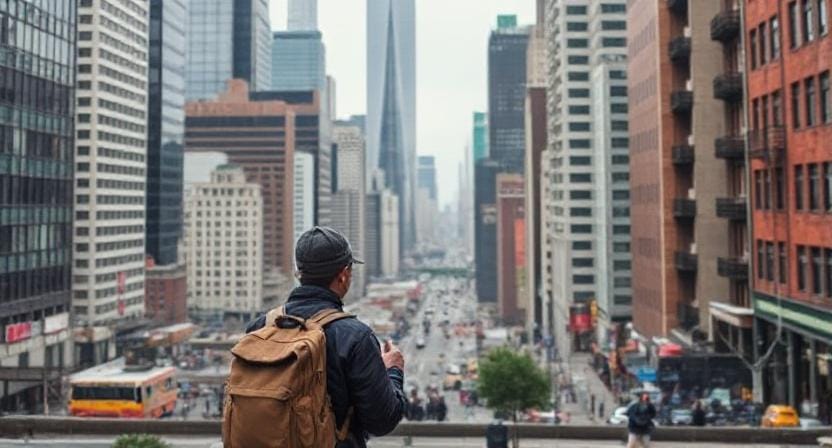
*** Shop for Survival Gear - Tools - Kits ***
Survival Gear - Bags and Backpacks - Knives - Boots/Footwear - Communication
Outdoor Cooking - Gloves - Hydration - Dry Boxes - Water Filtration Systems
Tents - Sleeping Bags - First Aid Kits - Multi-Tools - Flashlights - Fire Starters
Navigation - Survival Food - Night Vision - Headlamps - Stun Guns - Binoculars
First off, let’s talk about something truly revolutionary: using your eyes! I know, right? It sounds like something out of a 1950s survival manual. But seriously, paying attention to your surroundings can be incredibly helpful. Look for landmarks—those big buildings or statues that everyone pretends to love in tourist brochures.
By the way, if you find yourself near a Starbucks, congratulations! You’ve just located one of the most reliable landmarks known to humanity. If coffee isn’t available during an emergency (which might as well be classified as an apocalypse), use other tall structures like skyscrapers or water towers as guides.
And don’t forget about nature! Trees can also be useful markers—especially those giant oaks that look like they’ve been there since dinosaurs roamed the earth. Just remember not to get too distracted by squirrels; they have a tendency to steal the show… and maybe even your snacks.
Maps Are Still Cool: Using Paper Like A Pro

Next up on our retro navigation tour is paper maps. Yes, those things you used to fold incorrectly before tossing them into your glove compartment where they would eventually become an origami masterpiece no one could decipher. In emergencies, however, these magical pieces of paper can save your bacon.
To be fair, reading maps requires some practice—like trying to understand why anyone would willingly eat fruitcake at Christmas. Start by familiarizing yourself with key streets and neighborhoods in advance.
When technology goes kaput and you're clutching that map like it’s made of gold leaf, knowing where you are will help prevent accidental detours into questionable areas (or worse yet—a knitting circle).
Interestingly enough, learning how to orientate yourself using a map is akin to unlocking an ancient treasure chest filled with knowledge—and perhaps some mildly embarrassing memories from geography class.
Asking for Directions: Channeling Your Inner Explorer
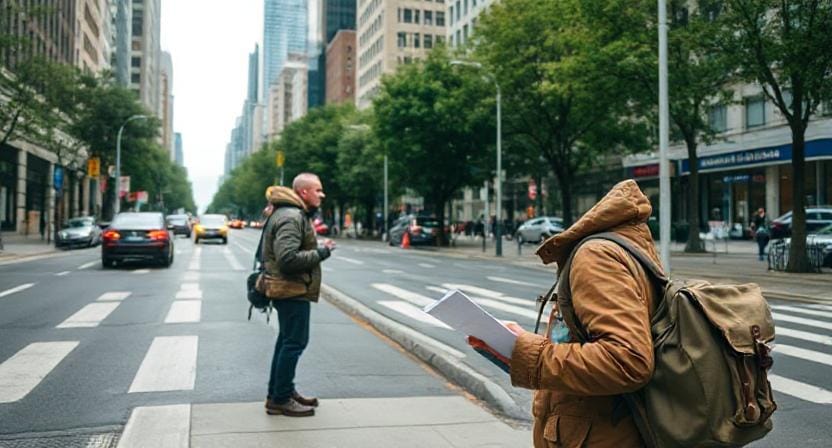
Let’s face it; sometimes asking for help is necessary—even if it feels like admitting defeat in front of people who probably don’t know any better than you do! However, turning into Indiana Jones doesn’t mean wandering aimlessly until someone offers guidance (although that does sound adventurous).
When seeking directions post-tech meltdown, approach locals with genuine curiosity rather than desperation.
People love sharing their knowledge—especially if they think you're lost enough to end up on reality TV! Ask questions like “What’s the quickest route to [insert landmark here]?” instead of mumbling incoherently while pointing at random spots on your map.
You’d be surprised how friendly folks can be during crises; after all, we humans thrive on helping each other out… unless they mistake you for someone trying to sell them cookies door-to-door!
Utilizing Public Transportation Wisely

Now let’s tackle public transportation—the lifeblood of urban navigation! Buses and trains may still run during emergencies (unless there’s a zombie apocalypse involved), so familiarize yourself with routes ahead of time.
Speaking of which, try memorizing major bus lines or train stops—you might feel like a walking transit encyclopedia but trust me; it’ll pay off when you're sprinting toward safety instead of standing bewildered at the wrong platform wondering if you've accidentally entered Narnia.
If public transport seems chaotic post-crisis (and let's face it—it probably will), look for signs indicating routes and schedules. Remember: panicking won’t help anyone find their way home faster!
Staying Calm Under Pressure: A Survival Skill

Lastly—and perhaps most importantly—stay calm! Panic leads only down dark alleys filled with confusion and bad decisions resembling those made after two cups too many coffee lattes at midnight.
In moments when everything feels uncertain (like deciding whether or not pineapple belongs on pizza), take deep breaths and refocus your mind on what matters most: getting from Point A to Point B without ending up in trouble or inadvertently joining an underground dance party led by enthusiastic street performers.
If you don't have your digital things with you during an emergency, a little planning can make a big difference. It's really like having a raincoat on hand. You never know when you'll need it!
Take a moment to think about it. It can be quite helpful to have a simple map or some basic survival guidelines saved somewhere. When the world feels chaotic around you, you don't want to be stranded wondering where to go. That sounds like a lot of work!
Please keep this guide close by. You may put it in your pocket or backpack, for example. You never know when something unexpected will happen in life. One minute you're drinking coffee, and the next you're trying to find your way through a maze of streets you don't know.
Keep in mind that moving without technology can be intimidating. It's normal to feel that way. Have faith in yourself. You can do this! Enjoy every tiny bump and turn of the journey. You will feel like a little adventurer when you get over the hard parts.
So, obtain that handbook and get ready for what's next. Who knows? You could even be surprised by how well you deal with it. Just smile and have fun!
Suggested External Resources:
How To Read a Map
https://www.wikihow.com/Read-a-Map
Urban Survival Guide
https://www.survivopedia.com/urban-survival-guide/
Emergency Preparedness Tips
https://www.ready.gov/emergency-preparedness-tips

Kevin Collier is a seasoned survivalist and expert in prepping and homesteading, contributing to WiseSurvive.com. With a deep-rooted passion for self-sufficiency and outdoor survival skills, Kevin shares practical advice, strategies, and resources to help individuals prepare for any challenge. His informative articles cover a range of topics, from essential survival techniques to sustainable living practices, empowering readers to thrive in any situation. Whether you're a novice or a seasoned prepper, Kevin's insights will inspire you to take charge of your readiness and build resilience for the future.

